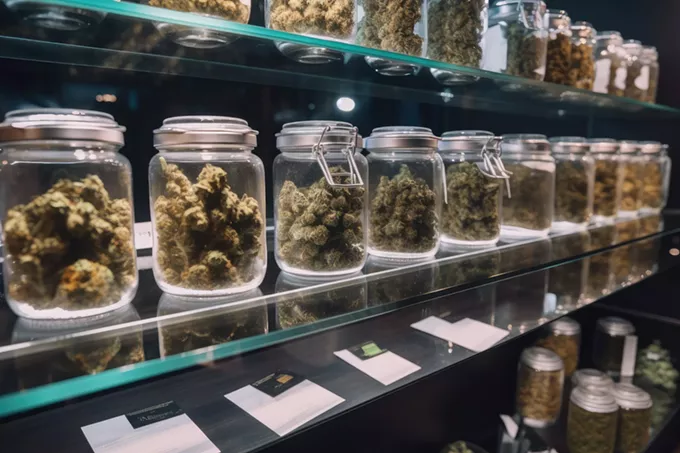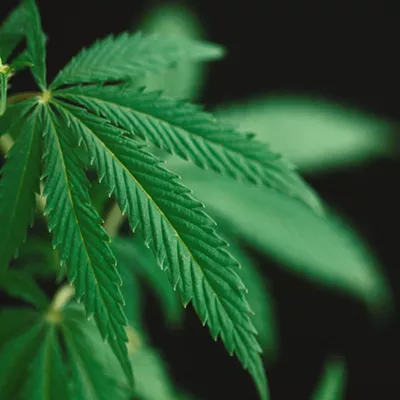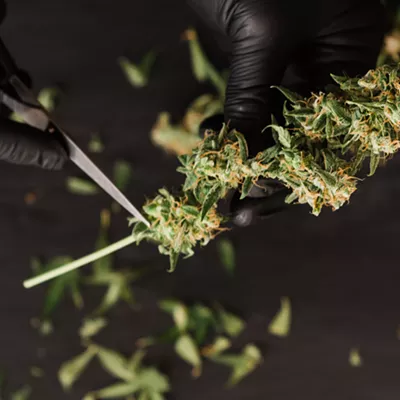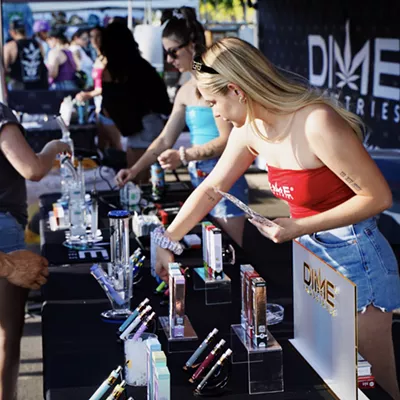Part of Arizona’s guidelines to legalizing adult-use of marijuana came with the implementation of a social equity program; a program that, ideally, would allow people affected by cannabis prohibition to open their own dispensaries.
Only 15 states even have social equity programs, and while well-intentioned, the rollout has seemingly lacked adequate infrastructure to withstand the hurdles of entering the cannabis market.
It’s an expensive industry to join, and pre-existing dispensaries, with loyal customers and prime locations present a stark beginning to someone competing against a million-dollar industry. Because Arizona’s program allowed applicants to partner with investors, as long as they secured 51% ownership of the establishment, many cannabis companies managed to profit off of the program, and its applicants.
In Arizona, applicants were chosen, at random, by a computer. 1,301 people applied, and 26 winners were chosen.
According to data from the Arizona Center for Investigative Reporting, 11 out of the 26 social equity licenses in Arizona are owned by corporate dispensaries; with some licenses purchased at lower prices than usual. Out of 13 dispensaries in Arizona that operate under a social equity license, only one is still owned by the original applicant, with the remaining 12 supported by corporate dispensaries. AZCIR’s investigation also found that three major cannabis companies submitted 37% of all applications, a move that played in their favor, due to the program's lottery system.
To better understand discrepancies throughout different social equity programs already in place, the Minority Cannabis Business Association, which was established in 2015, conducted the National Cannabis Equity Report in 2022.
Ordinarily, the cost of a dispensary license in Arizona costs thousands of dollars alone; with the total cost of opening a dispensary averaging at about $500,000. And despite social equity programs being in place, this does not change the expensive nature of entering the cannabis market.
“Economic and wealth disparities are among the many collateral consequences of the ‘war on drugs.’ Despite this, only six of 15 state social equity programs provide funding for social equity applicants and operators beyond fee reductions and waivers. Of the six states that provide funding for their social equity programs, all but California provides funding from adult-use tax revenues or from other monies collected from adult-use operations. As such, social equity applicants often lack adequate financial resources to support the application and start-up processes,” the report noted.
The data from this report alludes to the larger issues at hand when it comes to legalizing cannabis; intentions to diversify the cannabis industry have fallen short alongside the staggering ramifications of cannabis prohibition. States with social equity programs in place have separate qualifications as to who can be awarded a license. However, language codified in cannabis laws poses its own set of barriers. MCBA’s research found that many states avoid using race in its determining factors for eligibility in an equity program altogether.
“Race-based solutions in state cannabis reform are critical to remedying the race-based harm of cannabis prohibition,” the report said.
“Of the 15 state cannabis equity programs, only three exist in states with laws that limit the use of remedial race classifications — Arizona, California, and Michigan. While not prohibited by law, many states with social equity programs use alternative non-race criteria despite the disparate impact of cannabis laws and enforcement on Black, Latino, and Indigenous Americans. Despite social equity legislation citing the intent to create diversity within the industry, and specifically provide opportunities to impacted individuals and communities, the data shows these efforts have been unsuccessful.”
Arizona has strict limitations on the number of dispensaries that can operate within the state. This has created added value to a dispensary license overall, and when 26 licenses were introduced to such a narrow market, major cannabis companies began purchasing dispensaries, shelling out millions of dollars while they still could.
Ultimately, vague guidelines and insufficient support faced alongside an arena of established, wealthy cannabis corporations, are prominent causes for dysfunction within social equity programs. All of which should garner a larger discussion on truly reevaluating public policy, and how it can be used to undo decades worth of cannabis prohibition.











